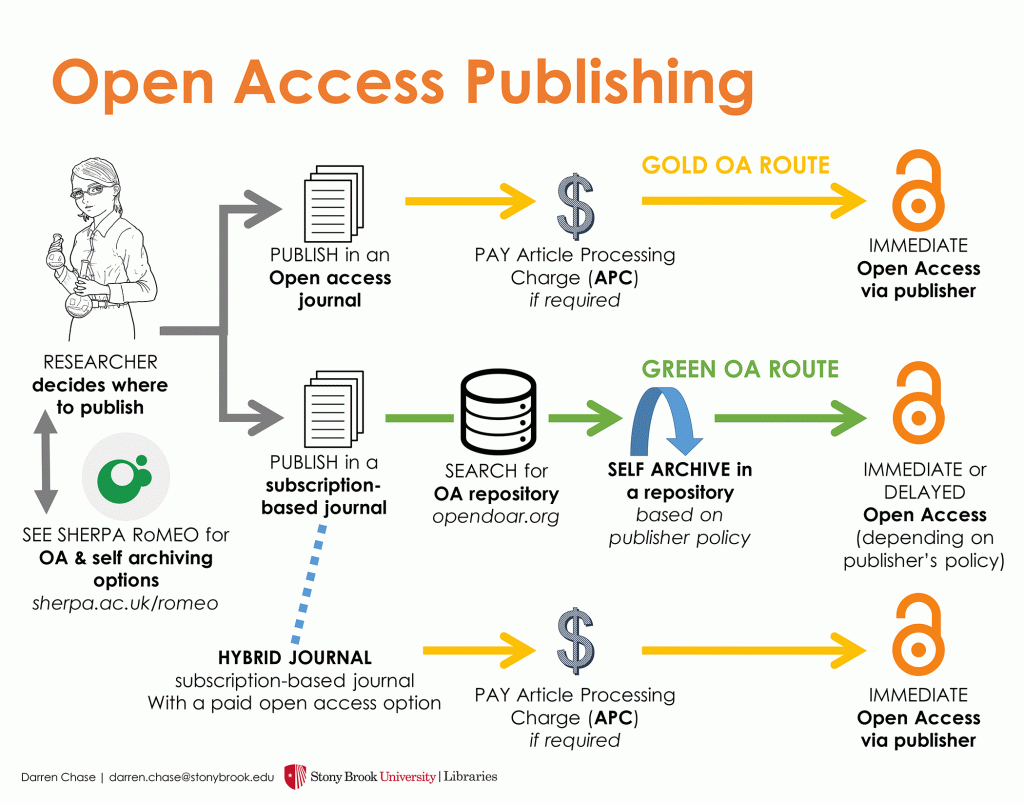Funding and Sharing Models for Open Access
Most closed access journals are funded through subscription fees paid by readers or their associated institutions (such as libraries or universities). Open access removes the cost barriers associated with accessing these materials, but this does not mean that the production, publishing, and sharing of open scholarship is without cost.
Many open access journals are funded through publication fees called article processing charges (APCs). These fees may be paid by the author, the author's institution, or their research funder. APCs generate income to cover publishing costs that might otherwise be covered by subscriptions, access charges, advertising, and other methods.
Open access journals that fund themselves through APCs are often operating under a gold or hybrid publishing model. Gold OA journals are fully open access, meaning that all articles they publish are immediately available openly. Authors are almost always expected to pay APCs to publish in gold OA journals. Hybrid OA journals are subscription-based journals that offer an APC option, in which an author can choose to pay an APC in order to make their article available not just to subscribers, but to all readers.
There are also journals that offer full and immediate open access to their content, but do not charge APCs to authors. These journals–often referred to as diamond or platinum OA journals–are generally funded through subsidies from institutions that are funding the journals’ operating costs. Diamond or platinum journal funding models are less common than gold or hybrid, and not all disciplines or subject areas will necessarily be represented within the scope of available diamond or platinum-funded journals.
Authors who wish to share their scholarship openly but do not have funding for APCs and/or do not have access to a diamond or platinum-funded journal may wish to use what’s referred to as green open access to share their work. In green OA, authors publish in a closed-access journal, then–as allowed by publisher policies–they share an appropriate version of their published article in an open access repository, such as a subject- or discipline-specific repository or an institutional repository. Sometimes embargoes (delays) may apply to green open access, as publishers may require a waiting period (often 12-24 months) before articles can be shared via open access. UNCG has an open access institutional repository–NC DOCKS–which can be used to share faculty, staff and student scholarship (as allowed by publisher policies).
The infographic below provides an overview of gold, green, and hybrid OA publishing options.

Machine Readable PDF of Open Access Publishing Infographic
Quick Check: